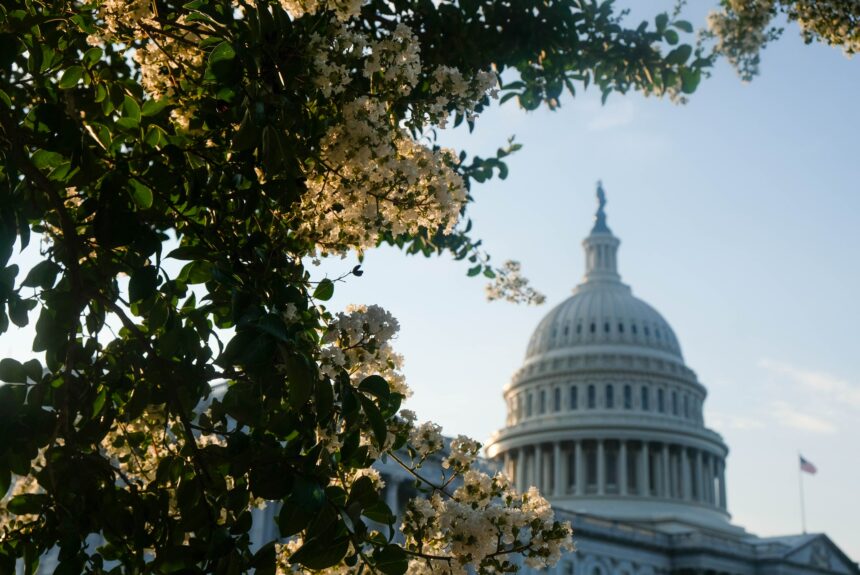If you’re reading this looking for a clear prediction, let me start by declaring that I have no idea who will win the presidential election. I would slightly prefer to be an operative in Trump’s camp, but I would be very nervous.
If you’re looking for analysis that will reassure you, or terrify you, it’s readily available and well-reasoned. I do think James Carville is probably right that the Electoral College is more likely than not to break somewhat clearly in one direction. The swing states are more likely to go 6-1 or 5-2 instead of 4-3, for instance, but I don’t know and neither does he or anyone else.
>>> What Trump Got Right and Wrong in the Joe Rogan Interview
That said, I will make two predictions: 1) The election will be close and will not hand either side an overwhelmingly clear mandate, and 2) The outcome will show that voters care more about energy prices than the “vibes” we’re hearing so much about.
Pre-mortems are helpful because, in any election, the winning side tends to overinterpret the results while the losing side tends to underinterpret the results. Close elections are cruel because they unjustly punish thoughtful and introspective arguments. Self-reflection isn’t as celebrated as finger-pointing and second-guessing, but the outcome will offer ample lessons learned for either side if they choose to study them.
One of the reasons our politics are so divided and polarized is that landslides in presidential elections are so rare. Our last unambiguous landslide election was 40 years ago when Ronald Reagan defeated Walter Mondale in 1984. Reagan won 97.6 of the Electoral College votes (525 to 14), and he won the popular vote by 18 points (58.8% to 40.6%). In 1988, George H.W. Bush decisively won the electoral college over Michael Dukakis (426 to 111) but won the popular vote by less than 8 points (53.4% to 45.6%). Even though we’ve seen clear electoral college winners since then, presidential races have become predictably close.
>>> Addressing 6 Common Concerns of Nuclear Naysayers
This is helpful to point out before camps and factions claim total victory. For instance, I’m in the Freedom Conservative camp regarding internecine disputes on the right. Still, the only prediction I’m comfortable making is that a Trump loss or victory won’t permanently resolve long-standing arguments about foreign policy and free markets. The same logic applies on the left. A Harris win or loss isn’t going to vanquish dissident factions in the Democratic coalition.
Everyone should ask: Why is the race so close, and why will it almost certainly end up being somewhat close?
The answer is that as important as vibes may be, voters tend to vote based on pocketbook concerns like affordability which is significantly impacted by policies around our master resource called energy.
Trump has remained competitive despite numerous unforced errors because voters give him higher marks on the economy. A recent CNBC survey showed that Trump has a big advantage in the economy. According to CNBC, “Voters say they will be better off financially if Trump wins by a 42% to 24% margin.” Meanwhile, the WSJ recently found that Trump had a 12-point lead among voters as the candidate “best able to handle the economy.”
Trump may or may not have intentionally lingered on energy policy during his recent appearance on the Joe Rogan show, but the conversation will probably help Trump among an electorate that has signaled they care intensely about anything that affects affordability. Another recent poll conducted by Morning Consult for the American Petroleum Institute (API) “found that 9 in 10 battleground state voters are concerned about inflation and more than 4 in 5 voters agree producing more oil and natural gas here in the U.S. could help lower energy costs for American consumers.”
Progressives can demonize “big oil” all they want but that argument isn’t going to connect with voters who want an “all of the above” energy policy that can bring down the price of everything. Limiting energy supply does not decrease demand. For anyone who cares to connect the dots, the electorate already tells us that candidates who favor energy abundance are more likely to be rewarded on November 5.
The views and opinions expressed are those of the author’s and do not necessarily reflect the official policy or position of C3.
